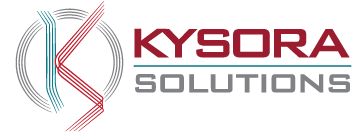Transform Your Organisation through the Power of Predictive Analytics

Predictive analytics is a powerful tool that can help organisations to significantly improve their operations and move towards their desired goals. By leveraging the power of predictive analytics, organisations can gain valuable insights into customer behaviour, market trends and operational performance, enabling them to make informed decisions that drive business growth and success. Predictive analytics can also be used to identify and address potential risks, optimise processes and reduce costs. This can result in a dramatic transformation of an organisation, leading to improved efficiency, profitability and market share. With the right predictive analytics tools and strategies, organisations can unlock the power of predictive analytics to transform their operations and gain a competitive edge in the market.
What is Predictive Analytics?
Predictive analytics is an advanced analytics technique that uses data mining, machine learning, artificial intelligence and statistical methods to predict future outcomes. This is done by analysing current and historical data to identify patterns and trends that can be used to make predictions about the future. Predictive analytics can be used in a wide range of industries and scenarios, from customer engagement and marketing to operational performance and risk management. It is a powerful tool that can help organisations to make more informed decisions and take better-informed actions that will lead to improved efficiency, profitability and market share.
Benefits of Predictive Analytics
Predictive analytics is a powerful tool that can help organisations to gain a competitive edge in the market. By leveraging the power of predictive analytics, organisations can gain valuable insights into customer behaviour, market trends and operational performance, enabling them to make better-informed decisions. It can also be used to identify and address potential risks, optimise processes and reduce costs.
One of the major benefits of predictive analytics is that it can help organisations to make better decisions and take more informed actions. With predictive analytics, organisations can gain insights into customer behaviour and market trends that can be used to inform decisions. This can lead to improved customer engagement, effective marketing campaigns, and better decisions about product development, pricing, and production. It can also help organisations to identify and address potential risks before they become major issues, optimise processes for improved efficiency, and reduce costs for improved profitability.
Predictive Analytics Examples
Predictive analytics is being used in a wide range of industries and scenarios. It is being used by retailers to better understand customer behaviour and develop effective marketing campaigns. It is being used by financial institutions to predict credit risk and improve their risk management strategies. It is being used by healthcare providers to identify potential health risks and improve patient outcomes. And it is being used by manufacturers to optimise production processes and reduce costs.
Predictive Analytics Tools
Organisations that are looking to leverage the power of predictive analytics need to have access to the right tools and technologies. There are a number of different predictive analytics tools that can be used, ranging from open-source software to enterprise-level solutions. Some of the most popular predictive analytics tools include Apache Spark, Azure Machine Learning, TensorFlow, and KNIME. These tools can be used to process and analyse data, identify patterns and trends, and make predictions about the future.
Predictive Analytics Strategies
In order to make the most of predictive analytics, organisations need to have the right strategies in place. This includes defining clear objectives and goals, gathering and analysing data, and developing a plan of action. It is also important to ensure that the data being used is accurate and up to date, and that the predictive analytics tools being used are fit for purpose.
Predictive Analytics for Customer Behaviour
Predictive analytics can be used to gain valuable insights into customer behaviour, enabling organisations to better understand their customers and develop effective marketing campaigns. By analysing customer data, organisations can identify customer segmentation and develop targeted campaigns that will drive customer engagement and sales. Predictive analytics can also be used to track customer behaviour over time and identify customer trends, enabling organisations to develop more effective products and services.
Predictive Analytics for Market Trends
Predictive analytics can also be used to gain insights into market trends, enabling organisations to stay ahead of the competition. By analysing market data, organisations can identify potential opportunities and threats, enabling them to make informed decisions about product development, pricing, and production. Predictive analytics can also be used to track market trends over time, allowing organisations to stay ahead of the curve and gain a competitive edge in the market.
Predictive Analytics for Operational Performance
Predictive analytics can also be used to gain insights into operational performance, enabling organisations to identify potential bottlenecks and inefficiencies. By analysing operational data, organisations can identify areas where improvements can be made and develop strategies to optimise processes. This can result in improved efficiency, reduced costs, and a more streamlined and effective operation.
Risk Management and Predictive Analytics
Predictive analytics can also be used to identify and address potential risks. By analysing data, organisations can identify potential risks before they become major issues, enabling them to take steps to mitigate or avoid them. This can help organisations to protect their assets and ensure that their operations are running smoothly and efficiently.
Process Optimisation and Predictive Analytics
Predictive analytics can also be used to optimise processes, enabling organisations to reduce costs and improve efficiency. By analysing data, organisations can identify areas of inefficiency and develop strategies to streamline processes. This can result in reduced costs, improved efficiency, and a more streamlined operation.
Cost Reduction and Predictive Analytics
Predictive analytics can also be used to reduce costs, enabling organisations to become more profitable. By analysing data, organisations can identify areas where costs can be reduced and develop strategies to reduce them. This can result in improved profitability, increased market share, and a more competitive organisation.
Conclusion
Predictive analytics is a powerful tool that can help organisations to significantly improve their operations and move towards their desired goals. By leveraging the power of predictive analytics, organisations can gain valuable insights into customer behaviour, market trends and operational performance, enabling them to make informed decisions that drive business growth and success. Predictive analytics can also be used to identify and address potential risks, optimise processes and reduce costs. This can result in a dramatic transformation of an organisation, leading to improved efficiency, profitability and market share. With the right predictive analytics tools and strategies, organisations can unlock the power of predictive analytics to transform their operations and gain a competitive edge in the market.
AI analytics machine learning ML Predictive predictive analytics
- by rajeev.devalall
- on March 10, 2023

